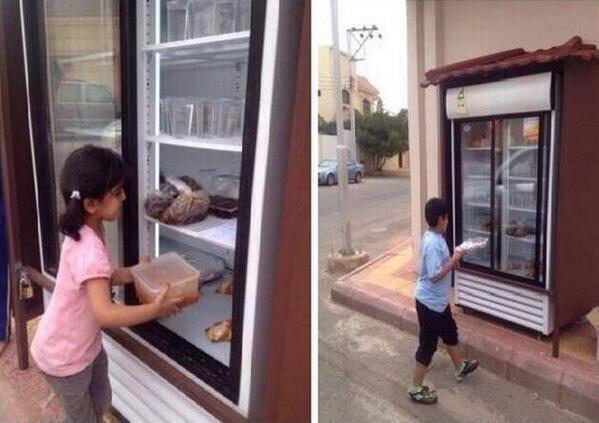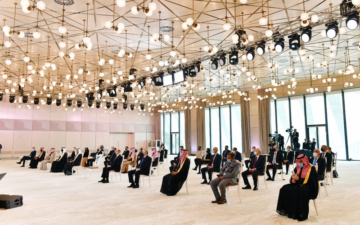A charitable man who wishes to remain anonymous recently installed a refrigerator outside of his home in Hail, Saudi Arabia. His neighbors can leave their excess food inside the refrigerator where it is kept fresh and clean. Needy people can then anonymously use this excess food without the shame of begging.
This man, who wishes to remain anonymous, has invented a brilliantly simple solution to the problems of food wastage and hunger.
Food makes up the largest proportion of the waste entering Saudi Arabia’s landfills.
A study conducted by King Saud University (KSU)’s College of Food and Agricultural Sciences estimated that 4,500 tons of food are wasted each day in Saudi Arabia. Even more food is wasted during Eid Al Adha, Ashoora, Ramadan, weddings and other celebrations.
The KSU study found that during each day of Ramadan, 30 percent of the 4 million prepared dishes are wasted. The excess food prepared for these feasts usually goes directly to the landfill, bypassing and insulting the hungry and poor people who might live in the same neighborhoods.
The Saudi man’s charity refrigerator solves two difficult problems with simplicity and compassion. It is far better to avoid buying and cooking more food than you can eat but for occasions where the excess is unpredictable and unavoidable, a donation to the charity refrigerator solves the practical problem of food spoilage and allows Muslims to follow Islamic teachings that charitable donations should be anonymous.
Though the man who came up with this idea remains anonymous, thanks to Twitter messages from religious scholar, Shaikh Mohammad Al Araifi, the idea itself is not anonymous and hopefully will spread to other parts of the Middle East and other parts of the world.
Photo from Shaikh Mohammad Al Araifi via Twitter





Comments are closed.